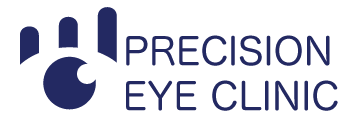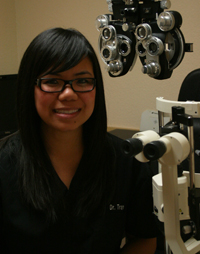
In order to maintain your eye health, we recommend yearly eye exams. No matter your age or physical health, it is important to have these exams in order to detect and diagnose vision changes and potential problems.
During your complete exam, your prescription for eye glasses or contacts will be determined by your doctor. They will also check your eyes for common eye diseases and evaluate your eyes as a pair, and as an indicator of your overall health.
A number of tests and procedures are included in a comprehensive eye exam to evaluate the health of your eyes and the quality of your vision. These tests will include simple ones like reading an eye chart, to more complex test like using a high-powered lens to examine the health of the tissues inside of your eyes.
Children
According to the American Optometric Association (AOA), all children should have their eyes examined at 6 months, age 3, and again at the start of school.
Children should then continue to have their eyes examined every year after starting school. Otherwise, schedule an eye exam more frequently for a child with vision problems or other risk factors.
Some experts estimate that approximately 5% to 10% of pre-school age children, and 25% of school-age children have vision problems. Some common risk factors include premature birth; developmental delays; turned or crossed eyes; family history of eye disease; history of eye injury; other physical illness or disease.



